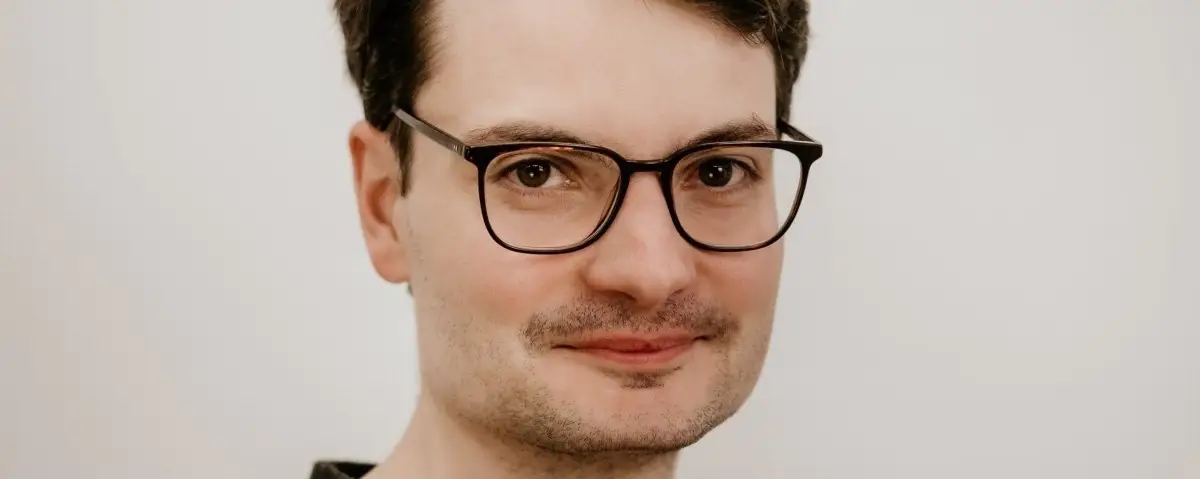“Maybe we can benefit from that in the future”
by Štěpán Vizi, GIZ/EUKI
Štěpán Vizi is a climate policy expert and project coordinator at the Czech NGO Centre for Transport and Energy (CDE), which is also the implementing organisation of the EUKI project Green Deal CEE. He focuses on EU climate and energy policy. He is also co-author of the first Czech-German podcast on climate crisis ‚Karbon’. We met him at the EUKI conference 2022 in Berlin.

Štěpán, what is your impression of the EUKI Networking Conference 2022?
It was a really nice experience for me because I am quite new to EUKI, and it was great to meet everyone in presence. It is is a good opportunity to get to know all the diverse EUKI projects and activities, to meet the people who are behind the project and to connect with everyone. Maybe we can benefit from that in the future!
How is the energy crisis in the Czech Republic? How is the government coping with the consequences?
It is obviously a huge topic. The prices have been rising since last autumn. A lot of people are in danger of energy poverty, and they fear what is going to happen during this winter. The government took some time to really react to this, and now they decided to have a cap on the electricity prices of households and companies which is one of their measures.
But of course, now we are coming towards a European solution that should be decided at the end of September. These two measures should somehow complement each other and help. However, it is still a problem because more help is needed towards the low-income households who will pay much higher prices than they paid before. Austria for example has solutions where you only have the cap for an amount of consumption and if you consume more energy than you pay, you must pay the market price which is why it’s more motivating to save energy. But for now, the Czech government is sticking with the mentioned measures, and we will see what the impact will be.
The new Czech EU Council Presidency might bring a change. Can you tell us more about the Presidency? How is it dealing with the difficult task of shaping a plan to achieve the goals of the Green Deal and handle the energy crisis?
The presidency is in a quite good position to negotiate the Fit for 55 package which is the main issue of climate policy now and is being negotiated in the trialogues right now. So far, they are trying to be on track and negotiate as much as possible. But it is still too early to make assumptions, so we will see what is going to happen. The most difficult issue is the expansion of the emissions trading system to buildings and transport and the social climate fund which is very closely connected to that. This is the difficult part where the positions of the Parliament and the Council really differ. Soon we will see if they will be able to reach an agreement.
How would you describe EUKIs role in the Czech Republic?
Since our project focuses on the whole of Central Eastern Europe and EUKI is a lot about international cooperation on the European level, I would not only focus on the Czech Republic.
We organised a workshop at the very beginning of the project. We identified the needs of partners in Central Eastern Europe and which actors could be allies. One interesting question that came up was, that a lot of people are interested in cooperating more with businesses, but often they don’t know how to do it, how to make these kinds of cooperations effective and what their possibilities are. So, this is something we have been engaging in the last months more intensively in Czechia. Now, we want to have a discussion, want to find out about what exactly would be useful in other countries, build on that and somehow try to replicate our experience from the Czechia in other countries like Poland, Slovakia, and Hungary. EUKI is really helping CEE countries to learn from each other’s experiences.
You and your colleague Filip Rambousek produced the first podcast in Czech German about climate change called “Karbon” in cooperation with Radio Prague International. Recently it was nominated for a Czech radio award. Congratulations, how do you work this out?
We always pick a broad topic like energy, renewables, nuclear energy or transport. We focus on one specific question and then we try to get to the core of the topic and emphasize what is related to the people, how it affects them and how it could change their life.
We are mostly working in the Czech context because we are based in Prague, but we always invite German experts as well. We don’t focus on a simple comparison of the two countries, but we try to confront the two discussions and two realities and from this come up with something that is interesting for the topic. So, we always invite two or three climate experts from both countries to cover our topics.
What was your intention to produce the podcast?
The idea is already a few years old. Back then there was very little public debate about climate crisis. When there was some coverage, it was often based on political proclamations. There was very little space for experts to talk about the issues. That was missing, fortunately that has changed a lot in the last few years. But there are still some blind spots, and we are trying to fix that.
Štěpán, thank you for the interview.
Find the Podcast “Karbon” here.
